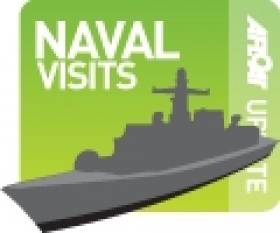Displaying items by tag: Vedee
French OPV ‘Guard-ship’ to Follow Figaro Fleet From Dun Laoghaire
The 447 tonnes OPV provides communication liaison and assistance should the forty six sailors require during the arduous race including SAR. As such the vessel can deploy a rapid response high speed RIB-craft from an internal dock-well located at the stern.
Otherwise the RIB is used to board fishing vessels as part of fishery monitoring duties and patrolling France's Exclusive Economic Zone out to 200 nautical miles (370 km). She is a Flamant class OPV and was built in 1997 by the Cherbourg based shipyard Constructions Mécaniques de Normandie. The 54m/177-ft craft is equipped with two 12.7mm machine guns.
As Dun Laoghaire is the only international port of call during the four-leg stages of the 1,695 nautical miles (3,390kms) the hosting of the Irish harbour is a welcomed boost to the sailing community and the local economy. Leading off the Carlisle Pier are pontoons where the one-design boats are moored and opposite is the East Pier jetty berth where the PSP Cormoran is docked.
Also at the East Pier is a festival market which is part of the Festival des Bateaux. The three-day festival ends tomorrow and was organised by the race-hosts the National Yacht Club, the Dun Laoghaire Harbour Company and Dun Laoghaire Rathdown County Council. For further festival details click HERE.
The presence of a foreign naval visitor to the harbour was more commonplace particularly during festivals held in the 1980's. In addition to the French, navies from Belgium, The Netherlands were regular festival participants.
- National Yacht Club
- Solitaire du Figaro
- Dun Laoghaire Harbour Company
- Dun Laoghaire Rathdown County Council
- Dun Laoghaire Harbour
- French Navy
- Festival des Bateaux
- Dun Laoghaire Harbour News
- Naval Visits
- PSP Cormoran
- Dun Laoghaire East Pier
- Dun Laoghaire pierheads
- Guardship
- Dun LaoghaireSables d'Lonne
- Vedee
- Dun Laoghaire Festivals






























































